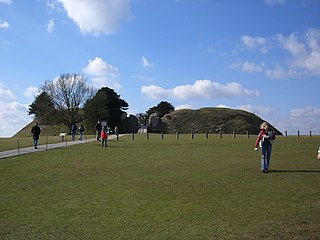Related Research Articles

Luigi Galvani was an Italian physician, physicist, biologist and philosopher, who studied animal electricity. In 1780, he discovered that the muscles of dead frogs' legs twitched when struck by an electrical spark. This was an early study of bioelectricity, following experiments by John Walsh and Hugh Williamson.

William Turner was an English divine and reformer, a physician and a natural historian. He has been called "The father of English botany." He studied medicine in Italy, and was a friend of the great Swiss naturalist, Conrad Gessner. He was an early herbalist and ornithologist, and it is in these fields that the most interest lies today. He is known as being one of the first "parson-naturalists" in England.

Venetia Katharine Douglas Burney was an English accountant and teacher. She is remembered as the first person to suggest the name Pluto for the dwarf planet discovered by Clyde Tombaugh in 1930. At the time, she was 11 years old.
Jacopo da Bologna was an Italian composer of the Trecento, the period sometimes known as the Italian ars nova. He was one of the first composers of this group, making him a contemporary of Gherardello da Firenze and Giovanni da Firenze. He concentrated mainly on madrigals, including both canonic (caccia-madrigal) and non-canonic types, but also composed a single example each of a caccia, lauda-ballata, and motet.

Pellegrino Tibaldi, also known as Pellegrino di Tibaldo de Pellegrini, was an Italian mannerist architect, sculptor, and mural painter.
Falconer is a Scottish surname, either a sept of Clan Keith or a clan on its own, having as crest an angel in a praying posture or, within an orle of laurel proper, as motto VIVE UT VIVAS but without a chief, being merely an armigerous clan. It is an Anglicized version of the Old French Faulconnier, the name being derived from the occupational name for a trainer of falcons. It can also be used as a first name or as a middle name.

Yester Castle is a ruined castle, located 1+1⁄2 miles southeast of the village of Gifford in East Lothian, Scotland. The only remaining complete structure is the subterranean Goblin Ha' or Hobgoblin Ha' . It is a Scheduled Ancient Monument, recorded as such by the Royal Commission on the Ancient and Historical Monuments of Scotland.
Jacopo is a masculine Italian given name, derivant from Latin Iacōbus. It is an Italian variant of Giacomo.

A physic garden is a type of herb garden with medicinal plants. Botanical gardens developed from them.
William Baldwin was an English author, poet, printer and cleric.

The Bologna Children's Book Fair or La fiera del libro per ragazzi is the leading professional fair for children's books in the world.

Hugh Bardulf or Hugh Bardolf was a medieval English administrator and royal justice. Known for his legal expertise, he also served as a financial administrator. He served three kings of England before his death.
Máire Lynch, Countess of Clanricarde, fl. 1547.
John Elder was a Scottish cartographer and writer. He was the tutor of Henry Stuart, Lord Darnley in England.
John Falconer may refer to:

Nicholas Adams,, of the Middle Temple, London and Townstal, near Dartmouth in Devon, was an English Member of Parliament.
Báncsa or Bancsa, also incorrectly Vancsa or Vancza, was the name of a gens in the Kingdom of Hungary.
Matthew Smyth was the first Principal of Brasenose College, Oxford.
Sir John Wishart of Pitarrow was a Scottish lawyer, courtier, comptroller of the exchequer, and rebel.
David Carnegie of Colluthie (1559–1598) was a Scottish landowner and administrator.
References
![]() This article incorporates text from a publication now in the public domain : "Falconer, John (fl.1547)". Dictionary of National Biography . London: Smith, Elder & Co. 1885–1900.
This article incorporates text from a publication now in the public domain : "Falconer, John (fl.1547)". Dictionary of National Biography . London: Smith, Elder & Co. 1885–1900.